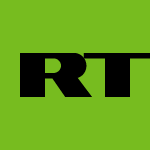Russian President Vladimir Putin expressed gratitude to North Korean leader Kim Jong Un for Pyongyang’s support in Russia’s ongoing conflict with Ukraine during a high-level phone call on Tuesday, according to an official statement from the Kremlin. The leaders discussed military cooperation and reaffirmed plans to deepen bilateral ties under a strategic partnership agreement signed earlier this year.
During the conversation, Putin specifically acknowledged North Korea’s role in supporting Russia’s efforts to retake control of the Kursk Region, a territory Ukrainian forces had occupied since August 2023. While the Kremlin did not elaborate on the nature of Pyongyang’s assistance, the reference underscores growing diplomatic and military collaboration between the two nations, both subject to extensive international sanctions. The call marked a continuation of dialogue following Kim’s visit to Russia in 2023, which focused on expanding defense and economic cooperation.
The two leaders emphasized their commitment to advancing joint initiatives under their comprehensive partnership pact, which includes provisions for mutual assistance and collaboration in technology, energy, and security. Officials confirmed plans to maintain direct communication between Moscow and Pyongyang, signaling potential further coordination amid heightened global scrutiny over their alliance.
The relationship between Russia and North Korea has drawn widespread attention as Western nations accuse Pyongyang of supplying Moscow with artillery shells and ballistic missiles for use in Ukraine, allegations both countries deny. Tuesday’s discussion followed recent reports of North Korean laborers and matériel arriving in Russian-controlled territories, raising concerns about sanctions enforcement.
Military analysts suggest the alignment reflects shared strategic interests, with Russia seeking munitions for its war effort and North Korea gaining access to advanced technological expertise. The partnership also highlights broader geopolitical shifts, as both nations face isolation from Western-led institutions and deepen ties with other sanctioned states like Iran and Syria.
The Kursk Region, a historically significant area near Ukraine’s border, became a focal point of hostilities last year after Ukrainian forces launched a surprise offensive. Its recapture by Russian troops in recent weeks has been framed by Moscow as a critical step in consolidating territorial gains.
While neither side disclosed specifics about future plans, the Kremlin noted that the leaders agreed to “intensify practical cooperation” across multiple sectors. The exchange reinforces a pattern of alignment between Moscow and Pyongyang since the Ukraine conflict began, challenging U.S.-led efforts to isolate Russia economically and diplomatically.
As tensions in Eastern Europe and the Indo-Pacific remain high, the evolving Russia-North Korea partnership is likely to factor into international discussions on security, sanctions, and regional stability. Further details about collaborative projects are expected to emerge in the coming weeks.
